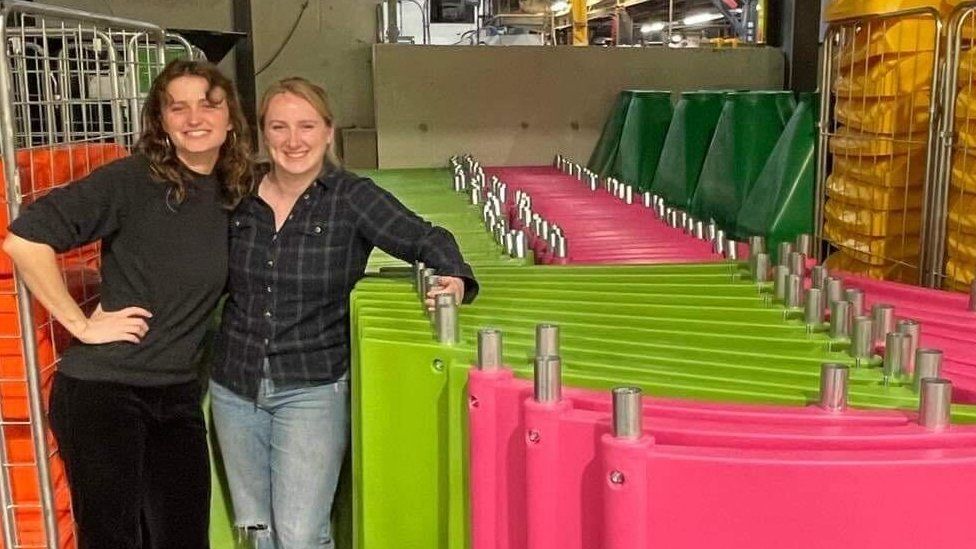Pair behind female urinal eyeing up European expansion
- Published

The team behind a women's urinal which is designed to reduce time spent in queues are now looking to trial their invention abroad.
The flatpack PEEQUAL urinals are designed by Amber Probyn, 25, and Hazel McShane, 26, who say they are six times quicker to use than a regular toilet.
The team have now raised £500,000 in investment, which the pair say they are using to improve the product.
They are hoping to bring the urinals to Germany and the Netherlands this year.
The pair, who graduated from Bristol University in 2020, came up with the idea after spending many summers working at music festivals in the UK.
They said they had to choose between going to the toilet or getting food during their breaks and so decided to work on the problem for their masters project.
Their invention is designed like a boat to minimise splash back and allows for clothing to come down at the front.
PEEQUAL currently have around 134 units and the pair say they are now signing several deals with large-scale festival operators, with 20 to 25 events currently secured for this coming season.
They say investors have now shown interest in bringing the urinals to festivals in Germany.
"We realise this is a shift in behaviour but it's a more efficient way of doing things," Ms McShane said.
"At the start of the day you might look at this woman's urinal and be like 'I'm not sure about that' - but after a few drinks, and after you've waited in the queue for about 15 minutes already - this option suddenly becomes much more appealing," she added.
According to their website, the team are aware of their climate impact.
In addition to the units being made out of plastic removed from the ocean, they are in discussions with a company to turn the thousands of litres of urine collected into fertiliser.
Follow BBC Bristol on Facebook, X and Instagram. Send your story ideas to us on email or via WhatsApp on 0800 313 4630.
Related Topics
- Published10 February 2022
- Published4 June 2021